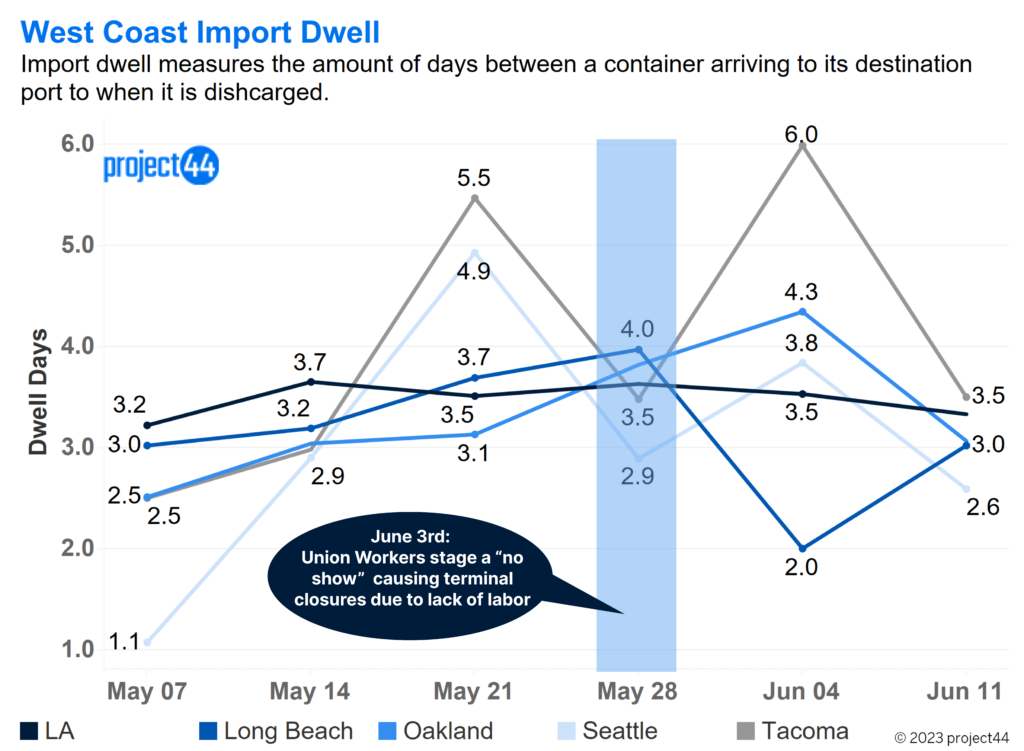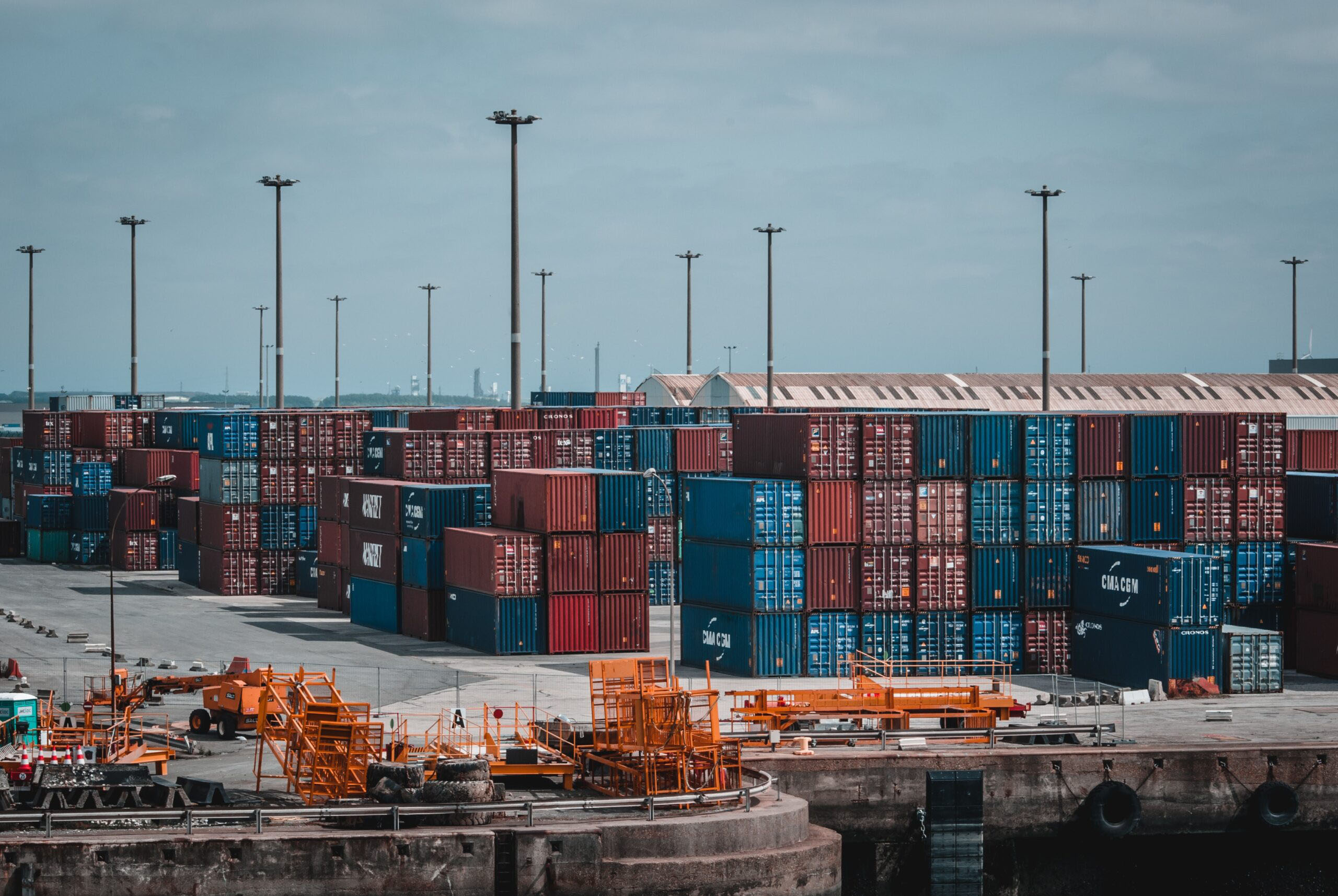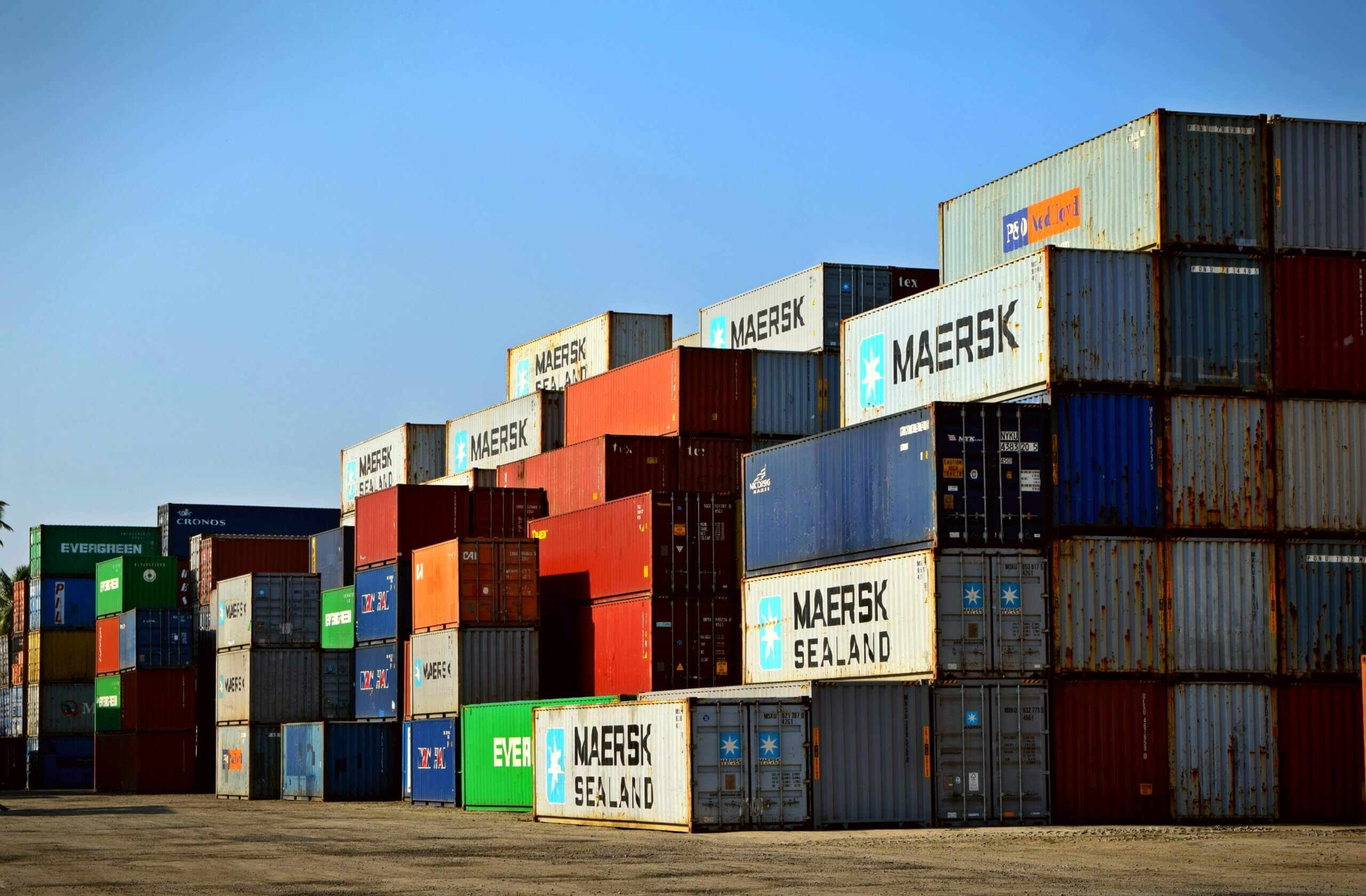Labor disputes between ports and workers are nothing new, but that doesn’t mean there aren’t major repercussions when they do occur. In March this year, workers in Germany went on strike, shutting down major ports that caused a ripple of supply chain disruptions. Now in June, we’re seeing the same thing happening on the West Coast of the United States. Union employees have been without a contract since July 2022. And now this is coming to a head with employees starting to “no-show” for work. A tentative agreement has been reached that would backdate to July 2022 and last six years until 2028. But has the damage already been done? Let’s take a look.
Container Dwell
Dwell time, an essential indicator for port operations, measures the duration a container spends in either its port of loading (export dwell) or its port of discharge (import dwell). High dwell times often signify operational issues within the port, as is the case with the ongoing labor disputes.

The impact of the current labor disputes on export dwell has been significant. Ports in Seattle and Oakland have experienced the most severe consequences, with Seattle seeing a staggering 120% increase and Oakland facing a 76% increase. Given that the West Coast is a hub for exporting animal feed, paper, soybeans, fabrics, raw cotton, and recycled metal, shipment delays contribute to manufacturing bottlenecks and disrupt food supplies for both humans and animals. However, there have been signs of improvement across the board during the week of June 11, excluding Seattle, where dwell times spiked.

Import dwell has also been affected, albeit to a lesser extent. Tacoma stands out as the port experiencing the highest spike, with a 71% increase. While there has been a significant overall recovery during the week of June 11, fluctuations are still possible as ports strive to clear any backlog resulting from the slowdown. This recovery is timely, supporting imports of time-sensitive products such as holiday and back-to-school refreshes.
Vessel Berthing Times
Vessel berthing time measures the duration it takes for a vessel to be worked at the port or the time it remains berthed. This metric encompasses unloading all containers intended for the port and loading all containers departing from the port on the vessel. While vessel size can also influence berthing times, operational obstacles, including labor issues, have recently led to an increase along the West Coast.

Over the past two weeks, all ports have experienced an upsurge in berthing times. Los Angeles and Oakland demonstrated improvements during the week of June 11, whereas Seattle, Long Beach, and Tacoma continued to experience increases. Notably, Seattle was the most impacted, with berthing times soaring by 225% during the week of June 11 compared to the week of May 28. Prolonged berthing times can disrupt vessel schedules and reliability, leading to delayed arrivals at subsequent ports or the need for less fuel-efficient operations to compensate for lost time.
Labor strikes have the potential to severely impact supply chains. Fortunately, a tentative agreement has been reached, and operations have resumed, bringing relief to the West Coast. However, close monitoring is necessary until the contract is officially signed. The tentative agreement grants union employees a 32% wage increase and a $70 million bonus, acknowledging their high-risk work during the COVID-19 pandemic. Once this is signed, labor in the West Coast ports should remain stable until renewal in 2028.
Summary
- Labor strikes on the West Coast caused significant disruptions in the supply chain, leading to increased export and import dwell times at ports.
- Seattle and Oakland were heavily impacted, with export dwell times increasing by 120% and 76% respectively, affecting industries such as manufacturing and food supplies.
- Import dwell times also saw an increase, with Tacoma experiencing a 71% spike, but there has been an overall recovery during the week of June 11th.
- Berthing times for vessels were affected by the labor disputes, particularly in Seattle where there was a 225% increase, potentially impacting vessel schedules and reliability.
For questions or comments:
press@project44.com
Disclaimer: The information conveyed herein, shared solely for summary and not contractual purposes, comes from both project44 and third-party reporting. The project44 data does not include all available market information, and project44 has not undertaken to independently verify the third-party reporting. Similarly, this type of data changes from day-to-day. Accordingly, the reader should not rely on this reporting to make any business decisions, and project44 expressly disavows any liability arising from any such reliance.



